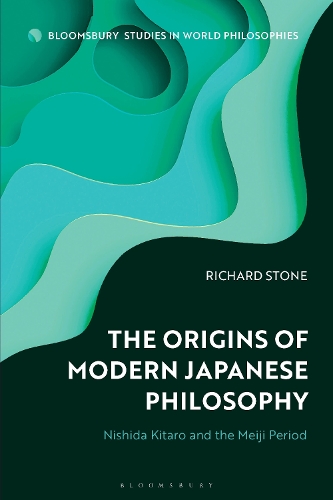
The Origins of Modern Japanese Philosophy: Nishida Kitaro and the Meiji Period
(Paperback)
Available Formats
Publishing Details
The Origins of Modern Japanese Philosophy: Nishida Kitaro and the Meiji Period
By (Author) Richard Stone
Bloomsbury Publishing PLC
Bloomsbury Academic
11th December 2025
United Kingdom
Classifications
Professional and Scholarly
Non Fiction
181.12
Physical Properties
Paperback
200
Width 156mm, Height 234mm
Description
Nishida Kitaro is widely considered as the first original philosopher in modern Japan. Addressing this claim, Richard Stone critically examines Nishidas relation to his contemporary philosophers in the Meiji era (1868-1912), highlighting the continuity, difference and relationships between them.
Stone reassesses the notion that Nishidas An Inquiry into the Good (1911) was substantially more philosophically worthwhile than any preceding attempts at philosophy in Japan, whilst demonstrating how his early ideas were heavily influenced by the work of thinkers such as Inoue Enryo, Onishi Hajime and Miyake Setsurei. He argues that original philosophy in Japan did not suddenly start with Nishida. Instead, it developed within a process of methodological refinement, wherein ideas starting from early Meiji philosophers were gradually given more rigorous treatment over the course of the era, eventually culminating in Nishidas early philosophy.
Providing an in-depth analysis of Nishida's work that brings it into dialogue with his predecessors, The Origins of Modern Japanese Philosophy offers both an engaging insight into the Meiji Period as the background of Nishida's philosophical formation and also a clear account of how several core themes in modern Japanese philosophy evolved over the course of an era.
Reviews
By investigating the beginning and identity of Japanese philosophy as well as the originality of Nishida Kitaros Inquiry into the Good and the autonomy of pure experience, Richard Stone places this influential work squarely in its formative historical context and lets us see exactly how precedents lie behind philosophical innovations. * John Maraldo, Professor of Philosophy Emeritus, University of North Florida, USA *
This book offers a detailed analysis of sources and arguments to answer the fundamental question of what makes Nishida the first modern Japanese philosopher. It is essential reading for understanding how Nishida's philosophical undertaking took shape in the context of Japanese intellectual history and how he, in turn, transformed it. * Raquel Bouso, Associate Professor in the Department of Humanities, Pompeu Fabra University, Barcelona, Spain *
Did Nishida present the first "philosophy" in Japan This book reveals how Nishida's maiden work, An Inquiry into the Good, constituted its problems and answers in response to other Japanese "philosophies" of the Meiji era. Through a brilliant analysis, Richard Stone gives us a great insight into why Nishidas philosophy later became the leading "philosophy" of modern Japan. * Yujin Itabashi, Professor of Philosophy, Rissho University, Japan *
By aptly contextualizing Nishidas inaugural work, An Inquiry into the Good, within the broader intellectual landscape of the Meiji period, and bringing attention to several lesser-known thinkers, this book provides English readers with a deeper and more nuanced understanding regarding the claim that Nishida is the first original modern Japanese philosopher. * Yuko Ishihara, Associate Professor at the College of Global Liberal Arts, Ritsumeikan University, Japan *
Author Bio
Richard Stone is Assistant Professor at Waseda University, Japan.
